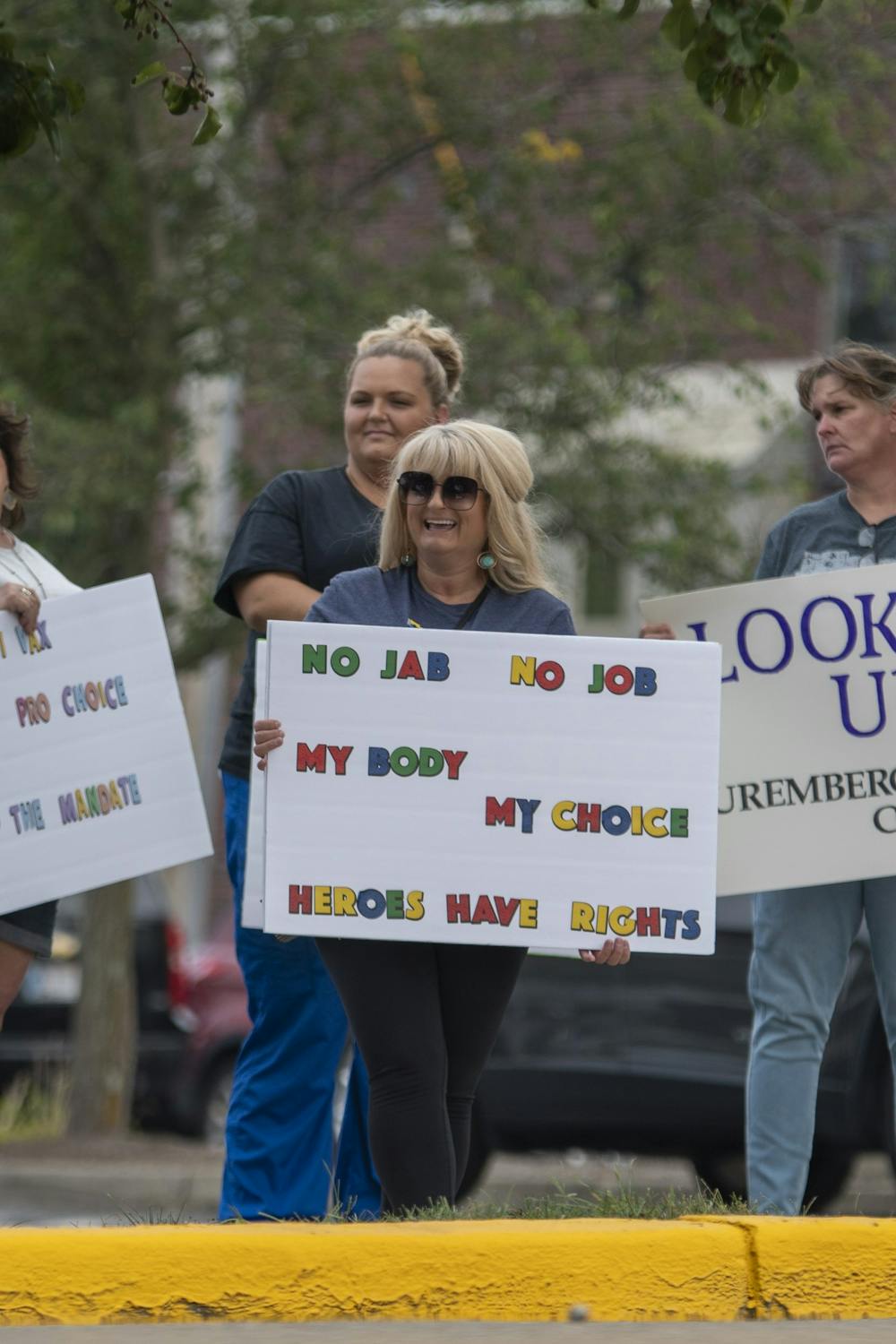Around 10 McCullough-Hyde Memorial Hospital employees and family members gathered outside the hospital at 4 p.m. on Aug. 25, with signs to protest the COVID-19 vaccine requirement for employees. Today was the second time they protested the requirement. The first was held last week.
TriHealth, which operates McCullough-Hyde, released a statement on Aug. 5 requiring vaccination for all its employees. TriHealth already requires other vaccines for its employees, such as the flu shot.
Jen Millett, a nurse aide, said she was protesting to be able to have the choice to be vaccinated against COVID or not.
“We advocate for patients to have freedom of choice with their medical decisions,” Millett said, “and I feel like everybody should be able to [make an] informed decision, weighing your options and then be able to make your own choices.”
Charlene Stacy, who also attended the protest and held a sign that said “freedom of choice,” agreed that the ability to choose was her main reason for attending.
“I am vaccinated, but I agree with everyone else here,” Stacy said. “It was my choice to get vaccinated, and it should be their choice.”
In an emailed statement to The Miami Student, TriHealth said it supports its team members' right to voice their opinions as long as it does not interfere with its primary mission – caring for its patients and the Oxford community.
According to the statement, TriHealth will be hosting forums through August and September to hear employees’ concerns and questions about the vaccine in hopes of mitigating hesitancy.
Millett’s main concern with the vaccine is its long-term effects.
“I actually had COVID in November, and we really don’t know ... the long term effects of that right now, as well as with the vaccine,” Millett said. “We don’t know the long term effects of it either, so it’s just a tough choice. I feel like it’s what’s best for me now until we see further studies and more information on it.”
According to the CDC, “serious side effects that could cause a long-term health problem are extremely unlikely following any vaccination, including COVID-19 vaccination,” and most side effects occur within six weeks of getting a vaccine.
“[We want] to be heard and have a choice,” Millett said, “because this is what we love to do and it’s hard to be given the ultimatum of either you [get vaccinated] or not be employed.”
Enjoy what you're reading?
Signup for our newsletter
According to a TriHealth FAQ, if employees fail to receive both doses of the COVID-19 vaccine by early October, they can no longer work for TriHealth unless they have a medical or religious exemption.




